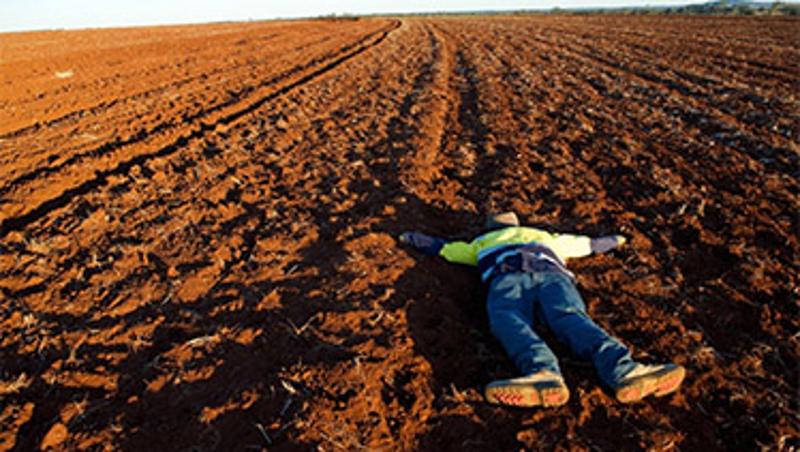
Outback Joe is in trouble again and will likely need a new breed of flying robot to help him.
QUT and CSIRO have raised the stakes for their next international UAV Challenge after a team of enthusiasts from Canberra, Australia, won the previous Outback Rescue mission in 2014.
Announcing UAV Challenge Medical Express 2016 at an unmanned systems conference associated with the Avalon Airshow yesterday, event co-ordinator Dennis Frousheger said the 2016 challenge was designed to push UAV technology to the limit.
"It's unlikely that traditional fixed-wing unmanned aircraft or small multi-rotor vehicles will be capable of meeting this challenge - new hybrid flying robots will probably be required," said Mr Frousheger, an engineer in CSIRO's Digital Productivity Flagship.
"This time, our hapless bushwalker is stuck in a clearing in the Australian Outback, surrounded by floodwaters, and his doctors have requested an urgent blood sample be sent to them.
"He's found his way to a clearing and has emailed his GPS coordinates.
"Joe's located in an area surrounded by obstacles so teams will need to develop systems capable of understanding the landing site, and plan and execute a landing - all of this at a distance of at least 10kms from their location."
To complete the mission, teams will need to deploy an aircraft from a small town outside the flooded area and have it fly autonomously for at least 10km to find Outback Joe.
The robot aircraft must locate Joe and automatically land nearby. After Joe places his blood sample into the aircraft, it must take off and fly quickly back to the town.
UAV Challenge co-founder Professor Jonathan Roberts, a QUT robotics expert with the Australian Research Centre for Aerospace Automation, is not expecting a winner in the first year of the new competition - but is happy to be proven wrong.
"It took eight years to save Joe in our Outback Rescue competition - that's with more than 2,000 people from 350 teams working on the problem and sharing their knowledge," Professor Roberts said.
"We're expecting many of those teams to take up the medical express challenge, along with others keen to push the envelope for UAV capabilities.
"The prize for saving Joe will again be AU$50,000."
The competition takes place in September 2016 in Outback Queensland, Australia.
Professor Roberts outlined the results of the 2014 Outback Challenge - Search and Rescue and the scope of the new Medical Express competition at the Australian Association for Unmanned Systems' conference, A Gathering Storm: Unmanned Systems Outlook in Australasia, held over three days in Melbourne and Avalon, Australia.
He said the full rules for the UAV Challenge Medical Express competition will be released in the coming weeks.
The UAV Challenge will also release new rules for the high-school student competition to be held during the 2015 September Queensland school holidays. The high-school event will also have a medical delivery theme.
Visit the UAV Challenge website for more information. You can email organisers at uavchallenge@gmail.com or contact Professor Roberts on 0412 395 326.
Follow the challenge on Twitter (or follow #uavchallenge) and Facebook.
A gallery of high-res images from previous events is available to media on the CSIRO website.
RELATED STORIES
QUT unmanned aircraft flights gain CASA approval
Tech-savvy hobbyists make UAV history
UAV Challenge Outback Rescue a flying success
Unmanned Aircraft: Countdown to Mission Possible
Media contacts:
Kate Haggman, QUT Media, +61 7 3138 0358, +61 407 585 901, kate.haggman@qut.edu.au
Emily Lehmann, CSIRO, +61 3 9545 8746, +61 0419 271 822, emily.lehmann@csiro.au


